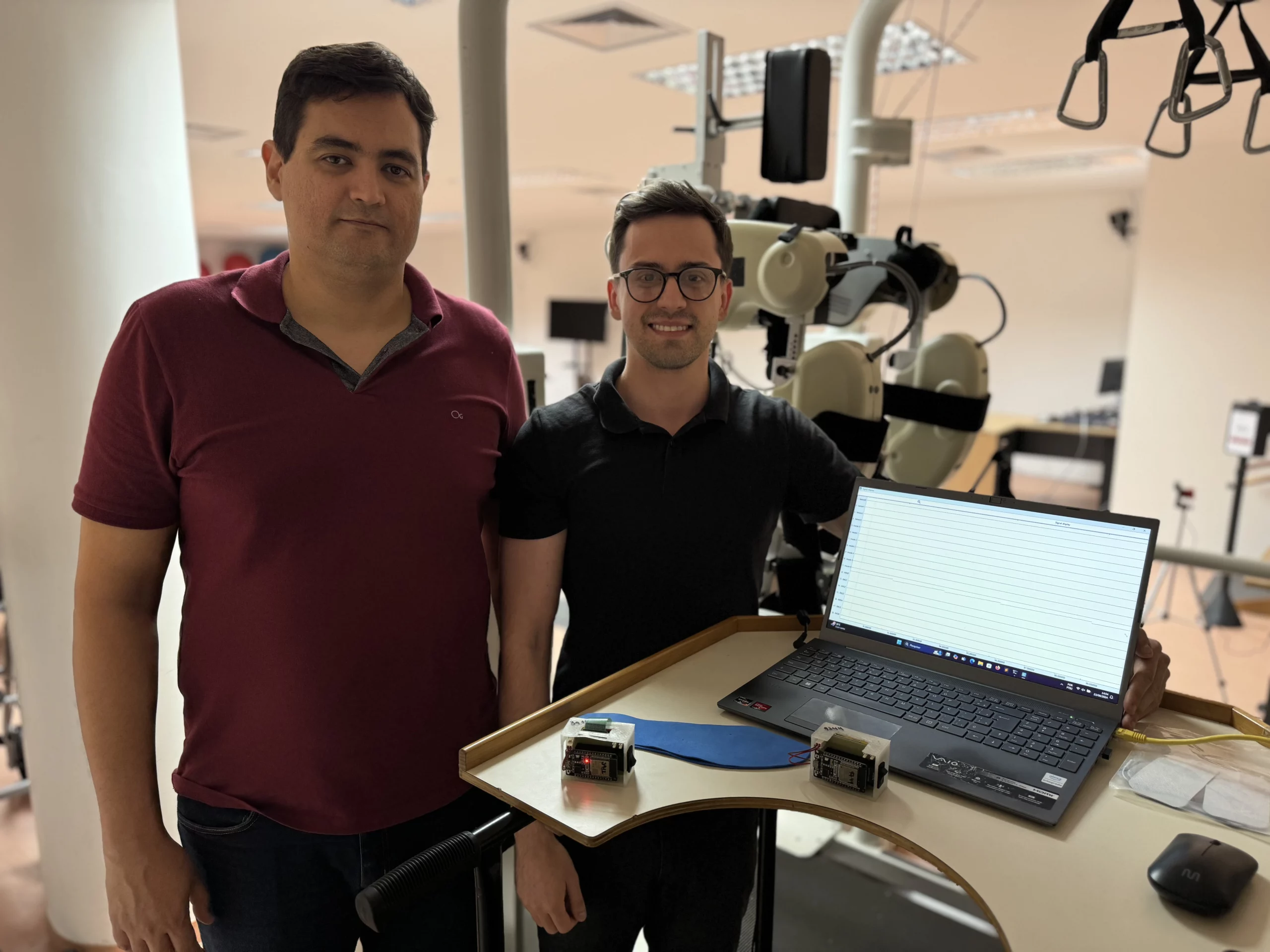Aiming to contribute to research and health care based on interdisciplinarity and technological innovation, scientists from the Santos Dumont Institute (ISD), a Social Organization linked to the Ministry of Education, developed a system that, linked to an insole, is capable of analyzing walking data and has the potential to facilitate and reduce the cost of the motor rehabilitation process.
The research is signed by Christian Lang Rathke, physiotherapist and master's student in Neuroengineering at ISD, together with Victor Costa de Andrade Pimentel, Pablo Javier Alsina, and professors of the Postgraduate Program in Neuroengineering at ISD, Caroline Cunha do Espírito Santo and André Felipe Oliveira de Azevedo Dantas.
Developed in Macaíba in Rio Grande do Norte, where the ISD is located, the study teve aimed to develop and reproduce a simple, low-cost and efficient system for gait analysis. The results obtained with the technology were compared to Zeno, an advanced system used at ISD in research that collects and qualifies walking data during motor rehabilitation protocols.
For this purpose, a insole incorporated into the system, using flexible sensors, so that the technology could capture data such as the “vertical ground reaction force”, a response to muscular actions and body weight transmitted through the feet, during walking. The intention is that the technology will be used to study motor control in patients with Parkinson's Disease.
In addition, the researchers enabled the system to be networked with several other devices through an infrastructure created at the ISD. “Our goal is for this infrastructure, called 'Neurodevices', to soon be used in other laboratories, as its objective is to integrate systems that have diverse functionalities and generate high-performance assessments in the therapeutic context,” explains Christian.
“The difference in the device we developed involves its versatility and ease of collection in open environments, its low manufacturing cost and its ability to connect to a network with multiple devices, such as electrostimulators and inertial sensors, which can be used simultaneously and in an integrated manner in rehabilitation, assessment or human-machine interface protocols”, complements the master's degree in Neuroengineering.
The article obtained from this work is entitled “IoT-Based Wireless System for Gait Kinetics Monitoring in Multi-Device Therapeutic Interventions” (“Wireless System Based on the Internet of Things to Monitor Gait Kinetics in Therapeutic Interventions Using Multiple Devices”, in free translation) and was published in “SENSORS”, a renowned journal in the area of Engineering and Internet of Things.
According to the authors, the results are significant and are reinforced by studies on similar systems. The developed communication infrastructure is promising and offers new possibilities for treatments and evaluations with multiple devices in the future. In addition, the developed gait analysis system has the potential to become an efficient and low-cost tool in the treatment and monitoring of disorders related to gait instability.
“In the near future, our goal is to make the system smaller, cheaper and with a longer battery life, making it more likely to be implemented in the public health system. In addition, we intend to use renewable materials, such as PET, for the manufacture of new insoles.”, considers Christian.
ABOUT ISD
The Santos Dumont Institute is a Social Organization linked to the Ministry of Education (MEC) and includes the Edmond and Lily Safra International Neuroscience Institute and the Anita Garibaldi Health Education and Research Center, both in Macaíba. ISD's mission is to promote education for life, forming citizens through integrated teaching, research and extension actions, in addition to contributing to a fairer and more humane transformation of Brazilian social reality.













